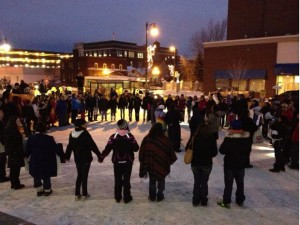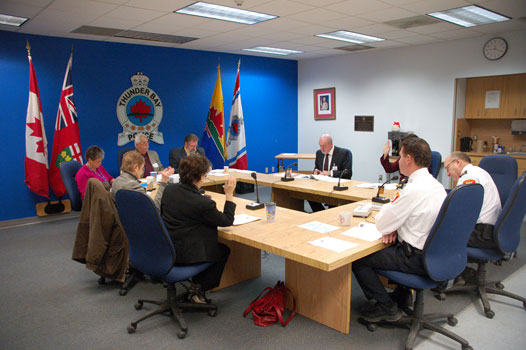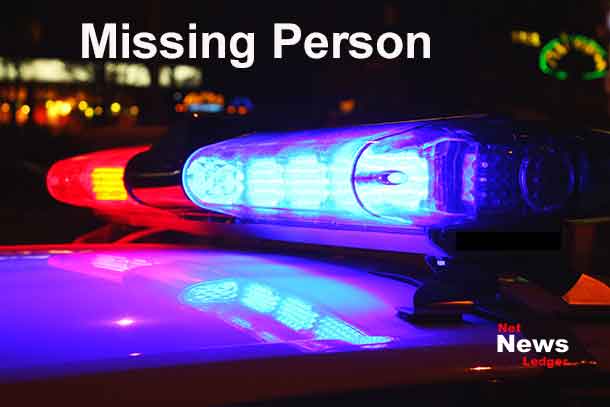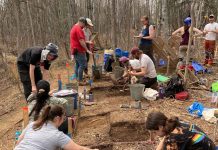 THUNDER BAY – Editorial – Thunder Bay has a crime problem. That issue has been agreed on by the Chief of Police. The Crime Prevention Council, Mayor Hobbs, most of City Council, and many of the city’s residents agree.
THUNDER BAY – Editorial – Thunder Bay has a crime problem. That issue has been agreed on by the Chief of Police. The Crime Prevention Council, Mayor Hobbs, most of City Council, and many of the city’s residents agree.
2012’s murder statistics will likely put Thunder Bay in the dubious position of being Canada’s Murder Capital.
Thunder Bay Police – Solutions and Engagement
While everyone seems to agree there are problems.
Not everyone is focused on what steps are needed to solve the problem.
Sadly that is likely not going to end any time soon. Relationships between the Thunder Bay Police Service and Thunder Bay’s Aboriginal population are strained.
Many of the things that would solve the problem are not appearing to happen.
The Chief of Police is on record stating that TBPS officers are feeling pressures in dealing with Aboriginal people. In growing numbers of cases, officers are being recorded on camera when doing their jobs. Cell phone cameras come out, and incidents are recorded.
Problems in the relationship shifted last fall.
The Nishnawbe-Aski Nation filed a Human Rights complaint last September.
NAN took the step after a press release that stated the “Fresh Breathe Killer” had been arrested. The release, that TBPS said was issued in error, was quickly retracted.

Chief Yellowhead from NAN stated, “Whether the police say this is racial or not, its callous, cold and unprofessional and treats the victim and his family with disrespect. This is not how a police organization should be run”.
At the time, the Executive Officer for the Thunder Bay Police Service said, “When something like this happens, of course it feels like a set-back. It does feel insulting too, to a lot of the hard work that is done by our members on behalf of every member of this community”.
The Chief has recently said, “Our officers feel they are walking on egg shells”.
That is likely the point. Police should be feeling like they are working under the public eye. The comments from police executive members are likely tearing away efforts to build better relationships.
Police are not the victims here. That might sound harsh, but until the police realize that fact, the problem is likely to continue.
It comes down to something very simple.
The issue of building relationships is fundamental to the goal of making Thunder Bay a safer community. It won’t be accomplished by force. It will not be accomplished by playing the ‘victim card’.
That people in the community pull out their cameras when the police show up should not have officers acting like they are walking on eggshells.
It should be something that really doesn’t matter or impact officers. Nothing our police service does in their dealings with the public should be bringing discredit to the fine work that the vast majority of police officers, and executive are accomplishing.
That it seems to speaks volumes – the message to the public is we don’t want more scrutiny.
“The degree of co-operation of the public that can be secured diminishes proportionately to the necessity of the use of physical force”.
“Police, at all times, should maintain a relationship with the public that gives reality to the historic tradition that the police are the public and the public are the police; the police being only members of the public who are paid to give full-time attention to duties which are incumbent on every citizen in the interests of community welfare and existence”.
These principles of policing was put forward by Sir. Robert Peel who is considered the father of modern policing.
They are basic and subtle principles.
In Thunder Bay we have a police service. We don’t have a police force. It is a distinct difference in wording.
On the steps of City Hall during an Idle No More rally, Mayor Hobbs expressed how the relationship must be one of mutual respect. Hobbs a thirty year veteran of policing in our community has that right. It should be a relationship of mutual respect.
Aboriginal Women and Police
When you talk to First Nations residents in our city about their relationship with the police, it is not one of a two way street of respect in many cases.
A few days ago, one young woman expressed her viewpoint on how things are in the city. Racism, brutality, drugs, and addiction, coupled with crime all present an all too large role in her daily life in the city.
Coming into contact with police, she explained how being frisked by a male officer degrades her. She expressed how being stopped on the street and questioned when she ‘didn’t do anything’ is intimidating. She also expressed that she feels helpless to do anything. Reporting the incidents to police is seen as pointless.
That is not an isolated engagement. Repeatedly if one is willing to listen, one hears serious concerns being raised.
Many Aboriginal people have had run ins with police.
Some report on incidents that if accurate fully explain how come the police do not get the level of co-operation that they would like to have with the people in our city who are Aboriginal.
Likely for some in our city, they might raise the point of how often Aboriginal people are “a part of the crime problem”.
Those kinds of viewpoints demonstrate the vast distance that must be narrowed in our relationships.
Once accomplished a more honest relationship will make our city a safer place for all of us to live.
Now it must be said, and members of the Aboriginal community have shared this view with NNL; It is understood that there is a degree of frustration that police officers must feel in doing their job. The levels of stress on law enforcement officers is large. Many people in the Aboriginal community accept that.
Solutions!
We all must believe that the solving of problems is a goal for civic leaders, First Nations leaders, Police, and residents.
Aboriginal leaders must step up and take a larger role. That is already starting to happen. It needs to be a faster moving effort with even more engagement.
Civic leaders must step up too, and many are already doing that.
At the provincial level, our MPPs must work to secure the needed funding for addiction treatment programs and facilities in our community. Some of that is already happening.
Federally, it is time for the federal government and Aboriginal groups to stop the attack battles and sit down and engage in the needed nation to nation talks that demonstrate a respect for the treaties.
For the Thunder Bay Police Service, it is time for change.
It is time for the executive to start even greater engagement with the community. There are likely several areas where active engagement, areas of communication, areas of investigation, and working to build trust are going to be key.
There have been several missed opportunities in our city
One was missed in adding an Aboriginal representative to the Thunder Bay Police Services Board. At the first available opportunity, Thunder Bay Police Services Board should have an Aboriginal person represented. Putting a representative on the Police Services Board would send a loud message to the Aboriginal people in our city that their voices matter and that their voices would be heard.
When you look at where our city is right now, with NAN Legal asking people to come forward to them to share problems; and with an anonymous group posting a map of unsolved missing and murdered women. The ‘Operation Thunderbird are also asking people to come forward with complaints, as well as going after what the group says are the facts.
Those are symptoms of a real problem in engagement.
Likely too, Mayor Hobbs has to take off his thirty year police cap more often, and leave his Mayor’s hat on in commenting on some of the issues. Mayor Hobbs has done more in his term to engage and involve Aboriginal people than in previous terms – but more is yet to be done.
Part of the solution are residents getting more involved
“When I ran for mayor two years ago, I ran on a platform of safe communities and I’ll tell you right now that plank has been an absolute failure,” states Mayor Keith Hobbs.
Some of the missed opportunities are because residents in our city have not felt their ability to step up would gain support. Increasingly, that is changing. In many ways Mayor Hobbs rode a wave of concerned citizens over crime issues into the Mayor’s office. Not making a big dent in crime in our city will likely impact Hobbs in terms of a second term.
Part of the solution would be greater communications from the Thunder Bay Police Service.
What is changing?
Likely what has changed the most is communication channels. Through social media, the public, and in particular the Aboriginal community are talking with each other.
Idle No More has put a focus on changing the relationships.
For many people in our community who are now, via social media sharing information. Social media moves far faster than the Thunder Bay Police. Police need to move their communications into the modern era.
Likely it is time for a team of Thunder Bay Police officers, including the Chief of Police to attend a SMILE Convention.
The SMILE Conference is the leading conference devoted to Social Media, the Internet and Law Enforcement initiatives. The SMILE Conference has pioneered the adoption of social media by law enforcement agencies across the world for public outreach, crime prevention, and forensics.
In conjunction with the ConnectedCOPS™ blog, The SMILE Conference has become both the go-to and most trusted source by law enforcement agencies worldwide.
The Thunder Bay Community is Engaging
There are community groups forming that are designed to bring residents together.
In Windsor the Community Action Group under the leadership of Alaina King is making steady progress. In Evergreen – A United Neighbourhood, Linda Bruin has been building a steady record of success. In the Limbrick Neighbourhood, Raven Linklater and others are stepping up to make a real difference in their neighbourhood.
Youth Centres Thunder Bay is engaging a growing number of 13-18 year old teens in positive activity and action.
Aboriginal Officer John Walmark is making a strong community presence, and is supported by the Thunder Bay Police Service in doing just that. Constable Walmark at events in the community is building trust within the city between police and residents.
Hate Crimes Unit
What is missing is a hate crimes division within the Thunder Bay Police Service. This should be a multi-jurisdictional unit working with the Nishnawbe-Aski Police and the Ontario Provincial Police.
Constable Larry Baxter of the Thunder Bay Police Service would be an excellent person to help co-ordinate that effort.
Moving Forward
Thunder Bay has enormous potential. We are watching the economic benefits from the growing healthcare sector, mining sector, and education sectors all presenting incredible opportunity. With clear focus, determination, and engagement our entire community can reap the maximum benefit from the opportunities ahead of us.
Working together we can do it.
Continuing to follow the status quo is something we all have to decide is not acceptable. All our residents need to have the full opportunity to succeed.
James Murray
Content and News Director







